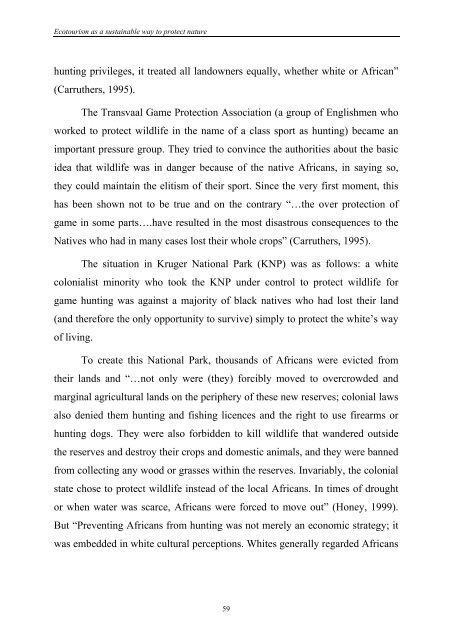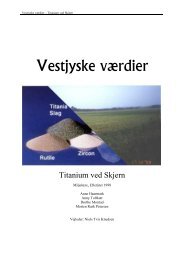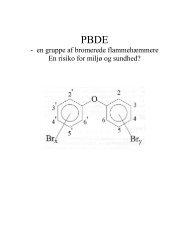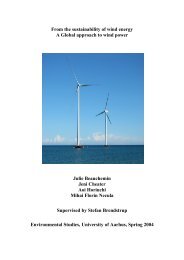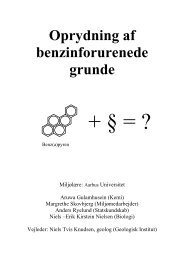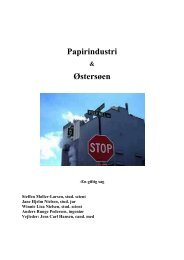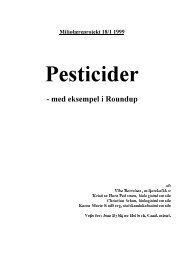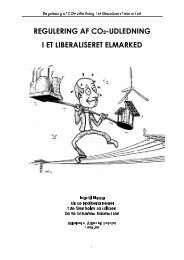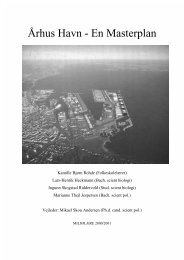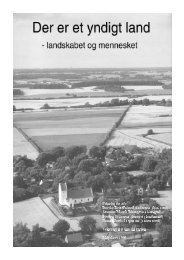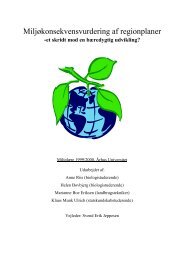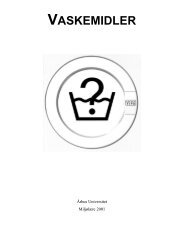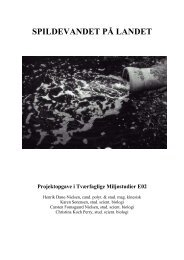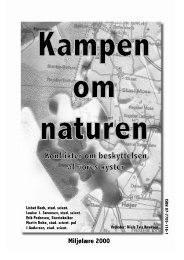University of Aarhus ECOTOURISM AS A WAY TO PROTECT ...
University of Aarhus ECOTOURISM AS A WAY TO PROTECT ...
University of Aarhus ECOTOURISM AS A WAY TO PROTECT ...
You also want an ePaper? Increase the reach of your titles
YUMPU automatically turns print PDFs into web optimized ePapers that Google loves.
Ecotourism as a sustainable way to protect nature<br />
hunting privileges, it treated all landowners equally, whether white or African”<br />
(Carruthers, 1995).<br />
The Transvaal Game Protection Association (a group <strong>of</strong> Englishmen who<br />
worked to protect wildlife in the name <strong>of</strong> a class sport as hunting) became an<br />
important pressure group. They tried to convince the authorities about the basic<br />
idea that wildlife was in danger because <strong>of</strong> the native Africans, in saying so,<br />
they could maintain the elitism <strong>of</strong> their sport. Since the very first moment, this<br />
has been shown not to be true and on the contrary “…the over protection <strong>of</strong><br />
game in some parts….have resulted in the most disastrous consequences to the<br />
Natives who had in many cases lost their whole crops” (Carruthers, 1995).<br />
The situation in Kruger National Park (KNP) was as follows: a white<br />
colonialist minority who took the KNP under control to protect wildlife for<br />
game hunting was against a majority <strong>of</strong> black natives who had lost their land<br />
(and therefore the only opportunity to survive) simply to protect the white’s way<br />
<strong>of</strong> living.<br />
To create this National Park, thousands <strong>of</strong> Africans were evicted from<br />
their lands and “…not only were (they) forcibly moved to overcrowded and<br />
marginal agricultural lands on the periphery <strong>of</strong> these new reserves; colonial laws<br />
also denied them hunting and fishing licences and the right to use firearms or<br />
hunting dogs. They were also forbidden to kill wildlife that wandered outside<br />
the reserves and destroy their crops and domestic animals, and they were banned<br />
from collecting any wood or grasses within the reserves. Invariably, the colonial<br />
state chose to protect wildlife instead <strong>of</strong> the local Africans. In times <strong>of</strong> drought<br />
or when water was scarce, Africans were forced to move out” (Honey, 1999).<br />
But “Preventing Africans from hunting was not merely an economic strategy; it<br />
was embedded in white cultural perceptions. Whites generally regarded Africans<br />
59


